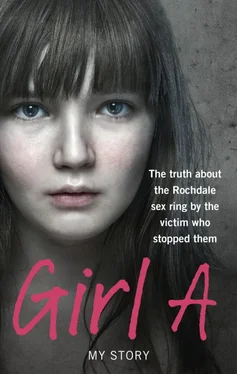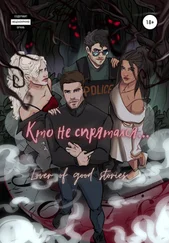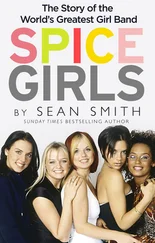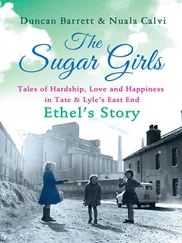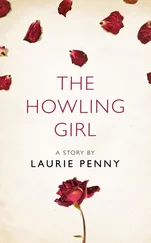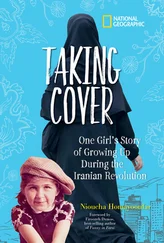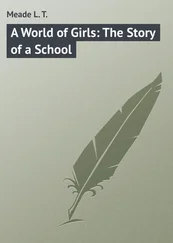Sadly, Dad’s bitterness about what had happened to me had turned into an irrational – and, thankfully, temporary – hatred of all things Asian.
‘Yes, I said. ‘Dad’s joined. He reckons that if the BNP get in to Parliament, they’ll give all the foreigners money to go back to their own country.’
Jane, gentle, lovely Jane, had a face like thunder.
‘That’s racism, Hannah,’ she said, as levelly as she could. ‘I think you need to think very, very seriously about what you’re saying here. Your own baby may be half-Asian, mightn’t she? And would you like her to grow up facing any sort of racial abuse?’ She paused and looked at me. ‘And, honestly, do you really think that what your dad seems to want is even possible? That people should be given money to go to a country they may never even have seen? This is their country!’
I think we both felt uncomfortable when we parted that day, When I got home I told Dad about it and he was livid, telling me I mustn’t see Jane again.
The summer would be over by the time the drip-drip of this BNP-fuelled poison between me and Jane would take full effect, but in the meantime I was feeling strong enough to push really hard with my GCSEs. I wanted to show the world, but especially myself and my parents, that I still had some kind of worth and could make some kind of contribution to the normal society I’d been locked away from. That I wasn’t just going to be a victim for the rest of my life.
So I put up with the sidelong glances and the ribbings and name-calling in the classrooms and corridors, and tried my damnedest to re-engage with education.
English lessons had never been a pleasure, but Maths was good, and I even started looking forward to Resistant Materials class. School as a whole was still a war zone but it was my war zone, and suddenly I began to feel I belonged.
There were still moments of terror that summer, though, as the gang’s taxis weaved their way through the streets of Heywood, Rochdale, Nelson, Bradford, and all the other towns where they had friends and relatives. I’d feel a sense of foreboding every time a taxi came into view or pulled up suddenly close by.
I’d wonder whether this was the moment they’d chosen to come back for me.
I left school once my exams were over, but didn’t do much beyond staying at home with Mum and Dad.
I missed the School Leavers’ Ball. I’d been invited, just like everyone else, but I was seven months pregnant and couldn’t face anybody. Part of me wanted to put on a nice dress and go to a ball, but I couldn’t do it. Apart from anything else, I felt ashamed that my life was such a mess: at times, I’d have another wobble and wouldn’t be sure I even wanted the baby I was carrying.
I saw the pictures of the ball on Facebook – a sea of bright, shiny faces, all scrubbed up and wearing smart suits and outrageous summer dresses. Not for the first time, I felt like I’d missed out.
I was beginning to miss out on Jane, too. She kept trying to call me but I kept putting her off. I’d be in the bath when she called, or busy, or something. Whatever. At the time, still a kid, I’d thought Dad was right. I’d become so used to just believing what others told me to believe. We’ve both changed our minds now. I can’t believe either of us truly believed it at the time.
Over the months, Mum’s initial horror at her eldest daughter’s pregnancy had mellowed. As my due date approached, she was more excited than anyone.
I, of course, was terrified, still not knowing whether my baby was the daughter of a paedophile rapist and not knowing how I would react if she was. Would I blame her and want to have her adopted? Or would I just accept her, whatever her colouring, whatever the way she was conceived? All through the pregnancy, the exams, the meetings with social workers about the baby, these were the thoughts that were always at the forefront of my mind.
Despite accepting the baby, and the fact that I was going to be a mum, I never felt much excitement or elation. Sometimes I’d convince myself that I hated the baby, that I didn’t want her at all. And I still so hated those mothers who were full of how wonderful their babies were, oh, and look at the pictures, and come and see the clothes we’ve bought…
It was, in fact, me that I hated the most: me and Emma and those men.
The girl who had loved dressing her Barbie dolls had shrivelled up and died long ago. I didn’t buy anything for the baby until a week before I was due, and even then I just bought a cot, a pram, bouncy chair, sterilising stuff and some nappies. I think part of me wanted to love the baby, but until I knew who the father was, it was too difficult, so I slipped into some sort of weird denial. Only, I knew there was no stopping Mother Nature, and soon I would have to confront reality.
* * *
The contractions were coming every five minutes when Mum and I set off for the hospital.
It was around 6 p.m., a cold, blustery day, and by then the midwife had already been out to see me.
When we got to the hospital, though, they weren’t sure. ‘Well, you don’t look to be in pain,’ said one of the nurses, ‘so we’ll probably have to send you home.’
She changed her mind when I had a contraction just as she was checking the dilation. ‘Crikey, Hannah, you must have a high pain threshold – you’re six centimetres! You can stay in.’
So for the next six hours I lay there, Mum wanting to rub my back, me not wanting her to, while, slowly, I dilated to eight centimetres. By then I was in pain, for all that the nurse had said about my threshold, and asking for an epidural.
They suggested instead breaking my waters to speed things up, but in the end agreed to give me the epidural. Mum and I both nodded off for a while then – me in the bed, her in the chair beside me.
At 6 a.m. I started pushing, and for the next half-hour I felt panic-stricken, wondering what colour the baby would be. I’d looked on the internet and, to my shock, read that even when a baby looks white when it’s born, the skin can change colour later on. I still wouldn’t know for sure, even when I saw her for the first time.
‘What will I do if it’s one of theirs?’ I whispered to Mum, after one of the later contractions.
But by then Mum was trying desperately to forget how this baby might have been conceived, and how abused I’d been. She’d been taken over by the excitement of it all: worried, too, but mostly excited. ‘You’ll do what’s right, Hannah, that’s what you’ll do. So don’t worry. Let’s just help her to be born.’
I wanted to be happy, to enjoy the moment like all the other mums on the ward that day. Instead, I was beside myself, almost with a feeling of grief, as I pushed one more time.
In the moment she was born, I looked away. I didn’t want to hold her or anything until I was sure, until I’d had a chance to have a proper look at her, to see if she was the daughter of one of my attackers. Tears were pouring down my face, and inside I was screaming: ‘ What colour is she? What colour is she? Is she one of theirs? ’
I remember still looking away, looking anywhere, frantic, as one of the nurses put her to my breast. Through my tears I screamed at Mum, ‘Get her off me, get her off me!’
Thankfully she was calm, sweeping this warm, soft little bundle of humanity into her arms and giving her a kiss. A first kiss.
Then she was trying to get me to focus. ‘Hannah, Hannah,’ I heard her saying, my eyes still turned away, ‘She’s not one of theirs, sweetheart, she’s not one of theirs. She’s just yours, and she’s beautiful.’
So that was Mum’s reaction: normal, happy, just enjoying the moment of her granddaughter’s birth. I still couldn’t look, still couldn’t hold her. Not for another two hours.
Читать дальше
